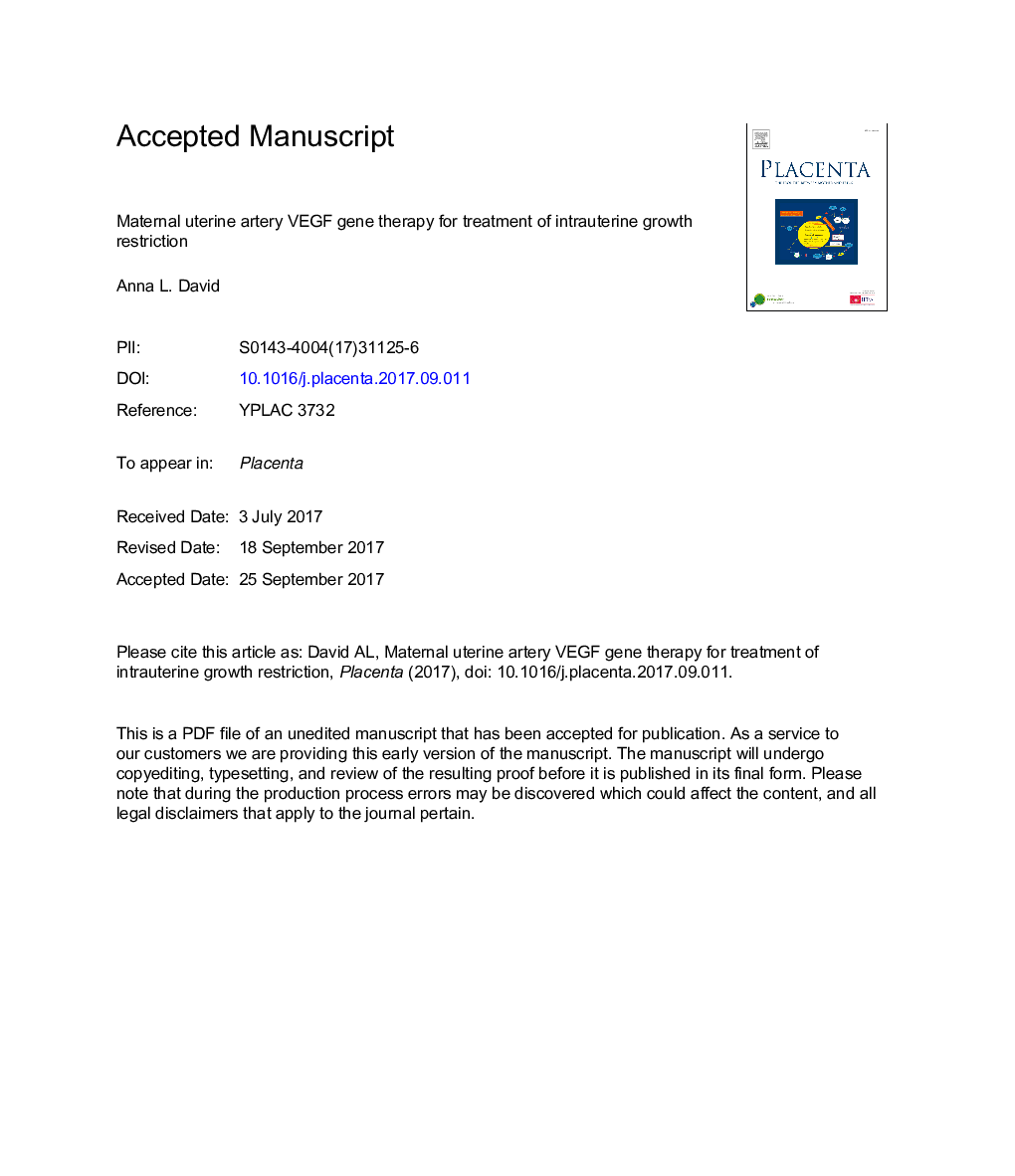| Article ID | Journal | Published Year | Pages | File Type |
|---|---|---|---|---|
| 8626704 | Placenta | 2017 | 27 Pages |
Abstract
Maternal uterine artery gene therapy presents a promising treatment strategy for IUGR, with the use of adenoviral vectors encoding for proteins such as Vascular Endothelial Growth Factor (VEGF) demonstrating improvements in fetal growth and neonatal outcome in preclinical studies. Mechanistically, maternal VEGF gene therapy delivered to the uterine arteries increases uterine blood flow and enhances vascular relaxation short term, while reducing vascular contractility long term. It also leads to vascular remodeling with increased endothelial cell proliferation in the perivascular adventitia of uterine arteries. Safety assessments suggest no vector spread to the fetus and no adverse risk to the mother or fetus; a clinical trial is in development. This article assesses research into VEGF maternal uterine artery directed gene therapy for IUGR, investigating the use of transgenes and vectors, their route of administration in obstetrics, and the steps that will be needed to take this treatment modality into the clinic.
Keywords
Related Topics
Life Sciences
Biochemistry, Genetics and Molecular Biology
Developmental Biology
Authors
Anna L. David,
